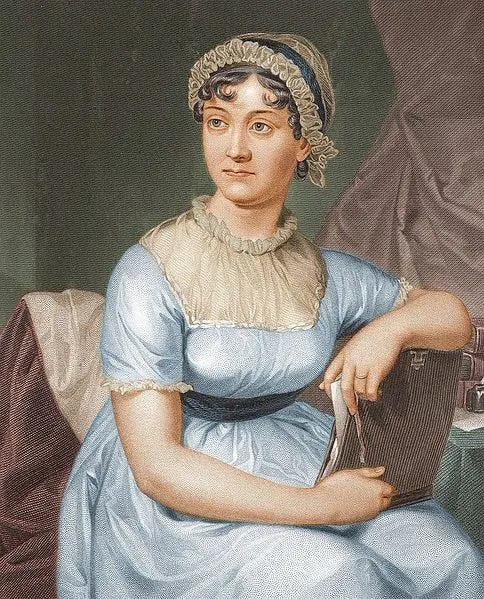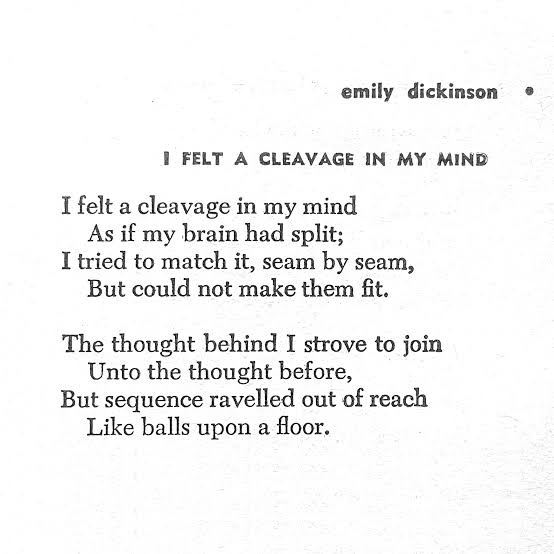Hi there!
happy mother’s day! you’re mother even though you don’t have kids, or maybe you do have kids.
Maybe your kids are the 300 post drafts you have. Remember to feed them, once in a while.
Anyway, here are the biggest news in literature so far:
A literary festival is holding a special event to mark 250 years since the birth of Jane Austen. You only turn 250 once in your life, might as well enjoy it.1

To mark its 100th anniversary, the Charles Dickens Museum in London will offer free admission to the author's former home and an opportunity to meet his living descendants. If you live in London, go check it out!!!2
Well, F*ck. Trump Administration Fires Librarian of Congress. Dr. Carla D. Hayden made history as the first woman and the first African American to lead the Library of Congress.3
An Agatha Christie AI Avatar is teaching an online writing course. Thought you should know.4
1.
Viva Poetry!

To remember Emily Dickinson’s passing 139 years ago, I thought about bringing some voices of Substack poetry to give you the bigger picture of what it’s like to be a contemporary poet in a social media platform. I asked three essential questions to four of them. Check it out:
FEATURED ON THIS INTERVIEW:
;Substack’s dearest, someone who does poetry so well that it scares me. ; a beautiful surprise and also a beautiful poet.; someone who has such a beautiful soul and it definitely translates into her poetry as well by Anya; aka the coolest newsletter owner ever.Why do you think poetry is overlooked in a literary platform like Substack?
: The thing about poetry being overlooked isn't unique to Substack - the reason why so many lit mags have such low acceptance rates is because there's always more people writing poetry than people interested in reading poetry. Personally, I feel this is because poetry is so deeply personal that it's hard to write poetry that both appeals to a larger audience and still retains that special quality that makes poetry poetry. It is also specifically harder on Substack because there isn't any tagging system for poetry and the way posts are formatted - even with the "poetry blocks" they offer - are limiting to the form of poetry. That's why I think you'll see a lot more poets on tumblr or Instagram.: I am not sure why poetry is overlooked in Substack but having said that, a lot of the people I follow are poets so I have found them nonetheless! I think poetry can be tricky - do we set rules on it and only call it poetry if it follows these rules? or can anything be poetry? Maybe this is why it is overlooked? It is a tricky subject to fence? I don't follow poetry rules for my own writing but I follow all sorts of different poets who do. says:Poetry is having somewhat of a rise in popularity right now, but for as long as I’ve lived poetry has been a relatively unpopular art form. Some people struggle to understand abstract language, some are uncomfortable with emotional vulnerability, and some see poetry as pretentious. Then there are those who are interested, but because there is no proper poetry category it can be difficult to find at first if a person is not already writing poetry.
Anya -
: I hate to say this, but substack is social media. Preferred platform, yes, but still social media. A few long forms, such as opinion essays, perform well here because everyone wants to speak their minds.But poetry? It asks you to be vulnerable, to keep an open mind, and to feel from the deepest chambers of your heart. It is soul-bearing in the simplest ways, and open mindedness is hard to find here.
Substack, despite being a literary platform, has become an echo chamber of intellectualism, where everyone wants to speak and not many want to pause, reflect, read, and share. I was lost in this algorithm-driven game as well. Recently, my opinion pieces have been performing much better, but to be sucked into that and not to write poetry is like lying to myself. I had to remind myself that I wrote to express, not impress.




